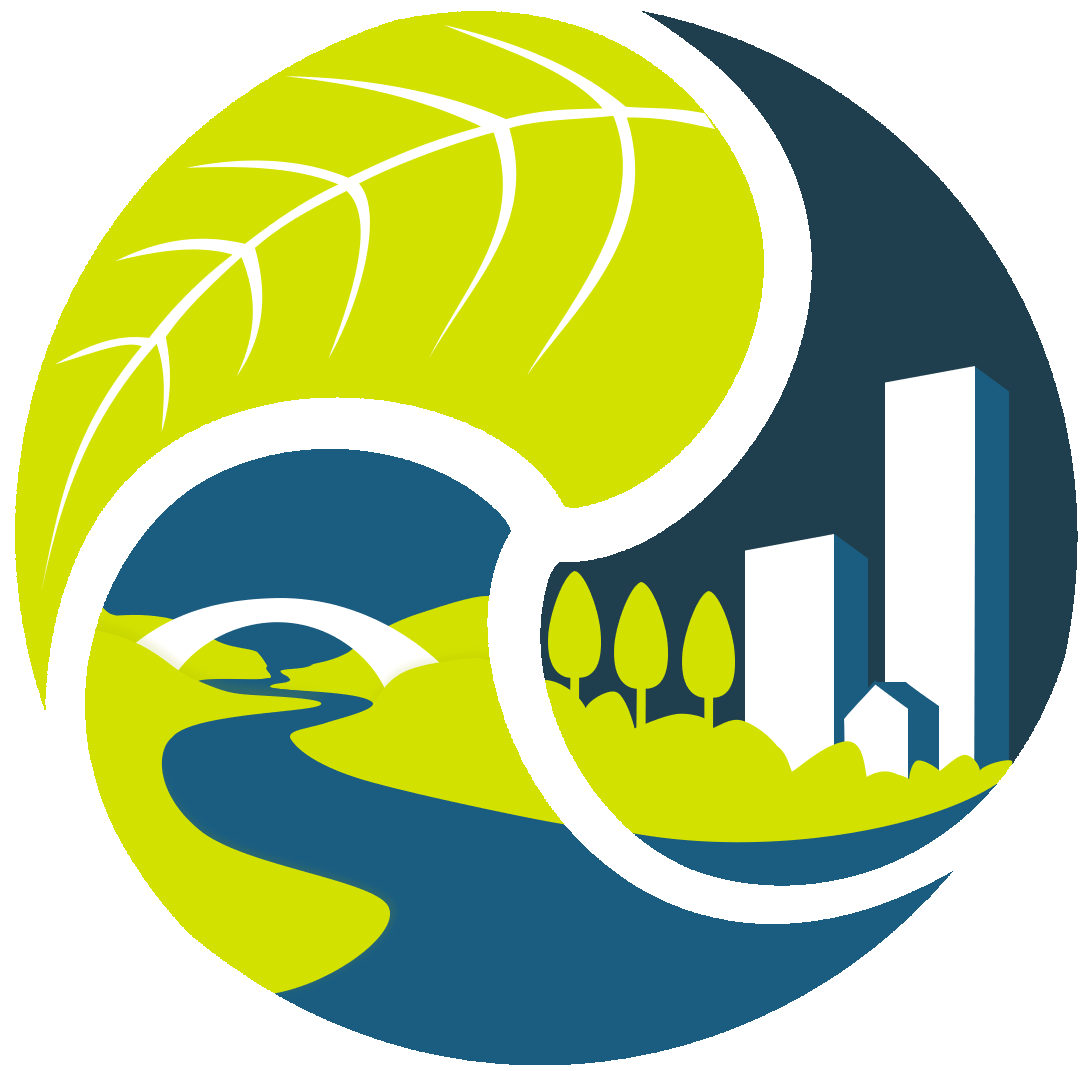To this end, the project is organised around 12 themes:
1- Transition, adaptation and resilience of socio-ecosystems to global change
Objective: The first micro-content aims to introduce the concepts associated with the key words, and the second aims to introduce the 11 other multi- and trans-disciplinary activities
Collective of the 21 designers of the 21 micro-contents
Keywords: Socio-ecosystem, trajectory, tipping points, trans-disciplinarity, sustainability sciences
[level 1st /2nd year of engineering & M1] 2 micro-contents of 30 min
Teaching methods: Videos, interactive quiz, reading of written documents or videos.
2- Climate change
Objectives: to detail the processes linked to climate change, to understand the importance of disseminating research to political actors, to recognise the arguments used in controversies.
Didier Hauglustaine (CNRS, LSCE), Nadège Blond (CNRS, LIVE), Rémi Barbier (ENGEES GESTE), Florentin Breton (LIVE)
Key words: Processes, controversies
[level 1st /2nd year of engineering & M1] 2 micro-contents of 30 min
Teaching methods: Video and quiz
3- Impact of climate change on the water cycle
Objectives: Illustration of the impacts of climate change on the water cycle (quantity, quality of the resource)
Sylvain Payraudeau (ENGEES), Sylvain Weill (ENGEES), Marie-Claire Pierret (Unistra/OHGE), Philippe Ackerer (CNRS), Renaud Toussaint (UNISTRA EOST ITES), Laurent Schmitt (UNISTRA LIVE)
Key words: Climate change and water cycle
[level 1st /2nd year of engineering & M1] 2 micro-contents of 30 min
Teaching methods: Video and quiz
4- Energy issues
Objectives: to understand the challenges of energy (resources, fossil fuels, production of renewable energy, energy efficiency & sobriety)
Renaud Toussaint (UNISTRA EOST ITES), Alain Clappier (UNISTRA LIVE), Nadège Blond (CNRS LIVE)
Key words: Energy, energy storage
[level 1st /2nd year engineer & M1] 2 micro-contents of 30 min
Teaching methods: Video and quiz
5- Legal principles of the European energy policy
Objectives: to present the main legal concepts that allow to understand the European energy policy, in particular from the point of view of climate neutrality and the Green Deal
Frédérique Berrod (Sciences PO Strasbourg)
Key words: Law, European Union, energy
[level 1st /2nd year of engineering & M1] 2 micro-contents of 30 min
Teaching methods: Video and reading of documents
6- Environmental protection through fundamental rights
Objectives: To explore how the fundamental rights approach (individual and/or collective rights, duties, responsibility, access to justice, co-responsibility) can allow for better environmental protection (both upstream in prevention and downstream at the reparation stage).
Elisabeth Lambert (CNRS SAGE) UNIT/CA/Project File 2021 - 6 - 30 April 2021
Key words: Right to a healthy environment, right to healthy and sustainable food, European approach vs. extra-European approach
[level 1st /2nd year of engineering & M1] 1 micro-content of 30 min
Teaching methods: Video and quiz
7- Air pollution
Objectives: Understand the processes and impacts of air pollution
Nadège Blond (CNRS LIVE), Maurice Millet (UNISTRA ICPEES)
Key words: Indoor and outdoor air pollution
[level 1st /2nd year of engineering & M1] 2 micro-contents of 30 min
Teaching methods: Video and quiz
8- Strategies to reduce air pollutant emissions
Objective: To understand the links between energy demand, emissions and pollutant concentrations. Review of effective strategies to reduce air pollution
Alain Clappier (UNISTRA LIVE)
Key words: Air pollution
[level 1st /2nd year of engineering & M1] 1 micro-content of 30 min
Teaching methods: Video and quiz
9- Quality of water resources, the challenge of "emerging" micropollutants
Objective: to present the concepts and tools for assessing the quality of a water resource with respect to emerging micropollutants, and the strategies for reduction and remediation
Jérémy Masbou (ENGEES ITES), Gwenaël Imfeld (CNRS ITES), Sylvain Payraudeau (ENGEES ITES), Adrien Wanko (ENGEES ICUBE), Anne Rozan (ENGEES GESTE)
Keywords: Hydrogeology, (micro)-pollutants, pesticides, pharmaceutical molecules, groundwater, aquifers
[level 1st /2nd year engineer & M1/M2] 2 micro-contents of 30 min
Teaching methods: Video, reading of documents and quiz
10- Responses of wild species to climate change and urban expansion
Objective: To show the different forms that living organisms can take in response to environmental constraints
Sylvie Massemin (UNISTRA IPHC)
Key words: Biodiversity, decline, anthropic pressures, adaptive strategies, microevolution
[level 1st /2nd year of engineering & M1/M2]: 1 micro-content of 30 min
Teaching methods: Video and reading of documents
11- Micro-organisms and climate change
Objectives: Recognition of the importance of the microbial world as essential to the functioning of the biosphere; effects of human activities and climate change on the microbial world, and retroactive effects of the microbial world; applications of "good" microbes (depollution, bioenergy, health)
Stéphane Vuilleumier (UNISTRA GMGM)
Key words: Microbial diversity, biogeochemical cycles, water quality, food safety, epidemics, (de)pollution
[level 1st /2nd year engineer & M1/M2] 2 micro-contents of 30 mins
Teaching methods: Videos, interactive quiz, reading of written or video documents UNIT/CA/Project File 2021 - 7 - 30 April 2021
12- Forest health, forestry, soil protection and climate change
Objective: To understand the interactions between forests, soils, atmosphere, hydrosphere and climate, the impacts of human activities on forest ecosystems: uses, exploitation, deforestation, plantations, but also linked to climate change (heat, drought, rain). Understanding the differences between oceanic, continental and boreal temperate forest ecosystems?
Marie-Claire Pierret (UNISTRA ITES), Emilie Beaulieu (ENGEES ITES), Benjamin Belfort (UNISTRA ITES)
Key words: soil fertility, forestry, biogeochemical cycle, nutrients, carbon, climate change
[level 1st /2nd year engineer & M1/M2] 2 micro-contents of 30 min
Teaching methods: Video, illustrations, reading of documents
These themes include 21 micro-contents (30 minutes) for hybrid teaching supporting the 30 courses of the Strasbourg university site, from bac plus 3 to bac plus 5, which concern the environment.
Other characteristics of the PUNCHY project:
- Designed in French and English.
- 21 C and EC participants but open.
- HP 5 imposed format (open source accessible in moodle)
For more information, please contact the project leader, Sylvain Payraudeau: sylvain.payraudeau[at]engees.unistra.fr


![[Translate to English:] Figue des 12 activités proposées par le projet PUNCHY](/websites/eost/fered/FORMATIONS/PUNCHY/Projet.png)